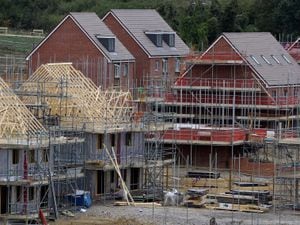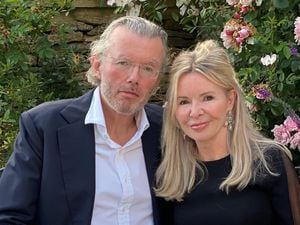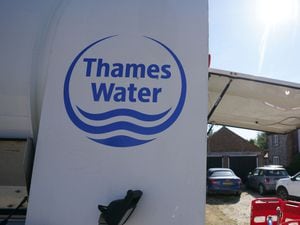Just over half of British Indians say they would get a Covid-19 vaccine – survey
Experts are calling for an urgent and targeted public health campaign to address hesitancy and assuage doubts.

Just over half of British Indians say they would get a coronavirus vaccine, according to research, prompting experts to call for targeted campaigns to address hesitancy in this community.
Some 56% of British Indians said they would take up a vaccine when asked by the 1928 Institute, a new think tank led by academics from the University of Oxford.
And 31% were unsure, while 13% said they would decline a jab, the poll of 510 respondents found.
The think tank said much of this stems from people feeling they are not informed enough about the vaccines, while a significant proportion feel other people deserve to receive a vaccine more.
The researchers are calling for an urgent public health campaign and funding, with messaging in different languages and co-produced with community leaders, to assuage doubts.
The Government should also widely share information on how it is helping poorer countries disseminate the vaccines, given that several participants said vulnerable people and those in poorer countries should take priority.
British Indians are the largest ethnic minority group in the UK. Analysis of surveillance data by Public Health England shows that death rates from Covid-19 were highest among people of black and Asian ethnic groups.
The report, “Vaccines, the pandemic, and British Indians”, brings together data from the British Indian Census survey in 2020, focus groups, and its own online survey in December, covering contributions from more than 2,000 British Indians.
It notes that the rapid development of the newly approved vaccines “brings a much-needed source of hope whilst for others, this is a source of anxiety”.
The findings echo those published by the Royal Society of Public Health in December, which found that Asian communities were least likely to take a Covid-19 vaccine (55% compared to 79% of white respondents).
Almost a fifth (19%) of those polled by the 1928 Institute who said they were unsure or would decline a vaccine said this was because “other people need the vaccine more than me”.
Women were less likely than men to say they would accept a vaccine, with concerns that this could make them less fertile.
There is no evidence to suggest that Covid-19 vaccines will affect fertility, leading doctors said this week.
Two royal colleges spoke out to address spreading misinformation, and said claims of any effect of Covid-19 vaccination on fertility are “speculative and not supported by any data”.
Dr Nikita Ved, co-founder of the 1928 Institute and research fellow at Oxford University, told the PA news agency: “It seems that the Indian/South Asian population in general have been really falling prey to this through things like WhatsApp forwards and fake news.
“And a lot of it seems to be directed at fertility, which is, I think, very interesting because there is no evidence to suggest that the vaccine causes fertility issues… there’s nothing to say that at all. This has not been proven.
“And so it’s just preying on people’s fears and insecurities because of course, again, not just within the Indian community but across many communities, infertility is still somewhat stigmatised.”
She said it may be that accurate information about the vaccine is not getting through, while in comparison it is very easy to forward a WhatsApp message that looks legitimate.
She added: “They aren’t staunch anti-vaxxers… they’re just scared, they’re just worried. And I think they aren’t fully aware that the risks of developing coronavirus far outweigh any risks from taking a vaccine.”
NHS doctor and TV presenter, Dr Ranj Singh, said he was worried about numbers of British Indians who appear reluctant to get vaccinated.
He said: “This needs to change, and that starts with trying to understand why. This overdue report goes a long way to finding out those reasons, and will be instrumental in helping us find the solutions we desperately need.”
Dr Habib Naqvi, director of the NHS Race and Health Observatory, said: “The lack of trust and confidence in the vaccination programme amongst diverse communities, who are already at increased risk, needs to be urgently reversed to avoid more dire outcomes and further widening existing health inequalities for people from diverse backgrounds.
“This is a potential double tragedy that can be avoided if the Government, local authorities and health providers invest in developing and promoting culturally appropriate interventions to debunk myths and misinformation.”
Minister for Covid vaccine deployment Nadhim Zahawi said: “Effective vaccines are the best way to protect people from the virus, save thousands of lives and help us return life to normal.
“We want every eligible person to benefit from the offer of a free vaccine, no matter their age, ethnicity or religious beliefs.
“The NHS is working closely with Black, Asian, and minority ethnic communities to support those receiving a vaccine and help anyone who may have questions about the vaccination process.
“As part of this we’re engaging with faith and community leaders to give them advice and information about the universal benefits of vaccination and how their communities can get a jab.”





